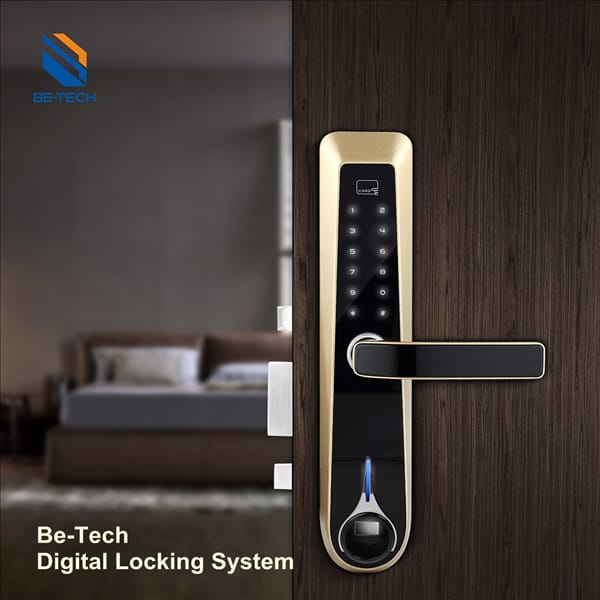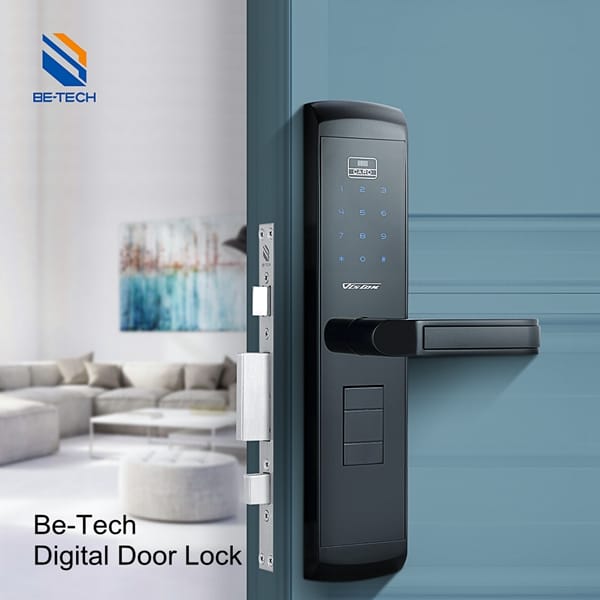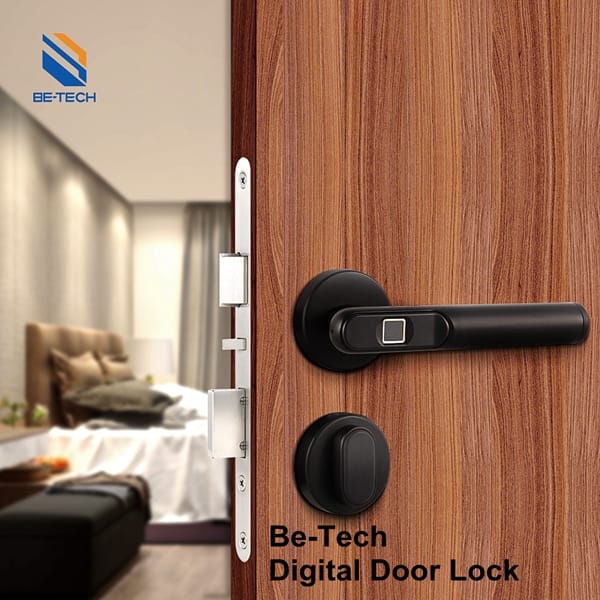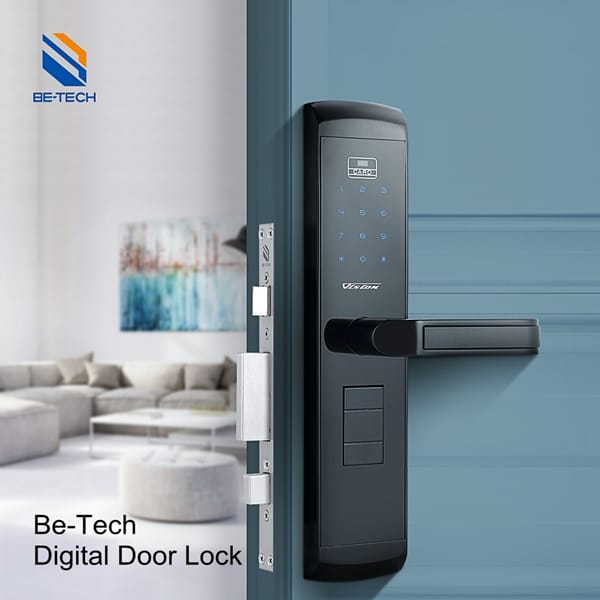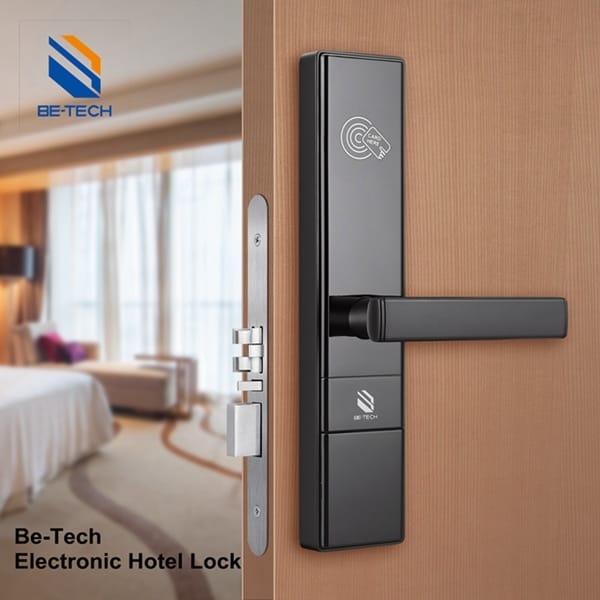When it comes to securing doors in homes, hotels, and businesses, it’s crucial to understand the different types of locks available and their specific uses. Two common types of door locks are bolts and latches. While they both serve to keep doors closed and secure, they have distinct differences in their mechanisms and applications. In this article, we’ll dive deep into the world of door bolts and latches, explaining their unique features, various types, and the best use cases for each in the context of the hotel industry and Be-tech Locks’ offerings.
Key Differences Between Bolts and Latches
The primary difference between bolts and latches lies in their operation. Bolts are manually operated locks that require sliding a metal bar into a strike plate or keeper to secure the door. In contrast, latches are spring-loaded locks that automatically lock into place when the door is closed, and can be opened by turning a knob or lever to retract the bolt.
To better understand this difference, consider this analogy: a bolt is like putting a pin in to keep something in place, while a latch is more like a seatbelt that locks automatically when buckled.
Types of Door Bolts
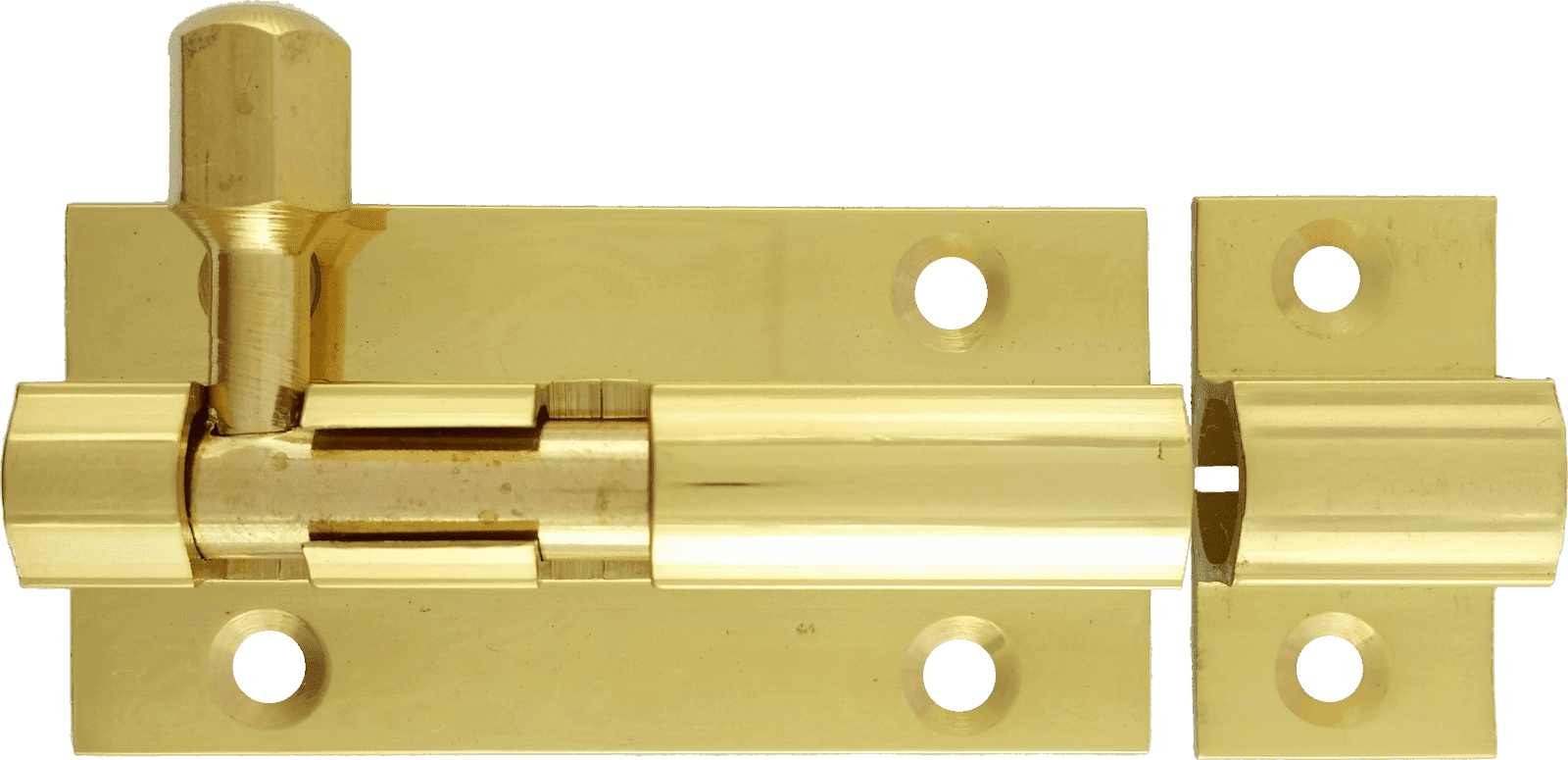
When it comes to securing doors, there are several common types of bolts available, each designed for specific applications and offering unique features. Barrel bolts are the most basic type, consisting of a cylindrical bolt that slides into a catch on the opposite side of the door frame. These simple yet effective bolts are often used on residential doors, gates, and cabinets for added security.

For double door setups, flush bolts provide a sleek and unobtrusive solution. Installed vertically at the top and bottom of the inactive door, flush bolts are recessed into the door itself, creating a seamless appearance. This type of bolt is particularly popular in commercial settings and on prestigious buildings where aesthetics are important.

Surface bolts, as the name implies, are mounted directly to the face of the door, typically near the top. These bolts offer an additional layer of security and are often used in conjunction with other locking mechanisms. Surface bolts come in various sizes and can be decorative as well as functional, making them suitable for a wide range of door styles.
When maximum security is required, deadbolts are the go-to choice. Unlike other types of bolts, deadbolts can only be retracted by turning a key or knob, making them extremely difficult to bypass. This level of security makes deadbolts ideal for exterior doors, as well as hotel guest rooms where the safety and privacy of occupants is paramount.
Real-World Example: Many hotel room doors feature a deadbolt in addition to the latch in the handle, providing an extra layer of security for guests’ peace of mind. This combination of a primary locking mechanism and a deadbolt ensures that the door remains securely locked, even if the main lock is compromised, giving guests a sense of safety and tranquility during their stay.
Types of Door Latches

Latches come in various types, each with its own unique mechanism and best use cases, making them suitable for different applications and environments. Tubular latches are the most common type, featuring a spring-loaded bolt that automatically locks when the door is closed. This simple yet effective design makes them ideal for use with knobs and levers on interior doors, such as bedrooms and bathrooms, where security is not a primary concern.

On the other hand, cam latches utilize a simple rotating cam that moves a bolt or lever to lock the door. Their compact design and easy operation make them a popular choice for cabinets, windows, and less-frequently used doors, such as storage rooms or utility closets. Cam latches can also incorporate locking mechanisms for added security in applications like toolboxes and lockers.
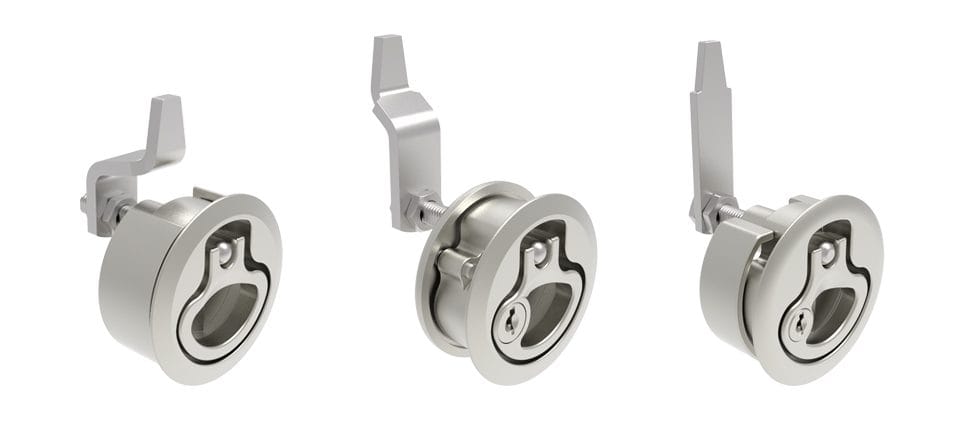
For situations that require a tight seal, compression latches are designed to put pressure on the door, pulling it securely closed. This makes them ideal for applications where soundproofing or weather sealing is crucial, such as in HVAC systems, electrical enclosures, or marine environments. Compression latches often feature gaskets to enhance their sealing capabilities, preventing the ingress of dust, moisture, or other contaminants.
Analogy: A tubular latch functions similarly to a ballpoint pen – pressing on the door knob retracts the bolt, just like pressing on the pen tip exposes the writing point. This analogy helps illustrate the simple yet effective spring-loaded mechanism that allows tubular latches to operate smoothly and automatically.
Choosing the Right Bolts and Latches for Hotel Doors
As a hotel lock procurement professional, understanding the differences between bolts and latches is crucial for specifying the appropriate hardware for each door type within your property. Here are some guidelines to keep in mind:
- Guest Room Doors: Opt for a tubular latch as the main lock, combined with a deadbolt for added security. For connecting doors between adjoining rooms, install a deadbolt on both sides.
- Public Restrooms: Use a tubular latch that locks from the inside for privacy but can be opened from the outside in case of emergencies.
- Back of House Areas: Basic tubular latches suffice for low-security areas like housekeeping closets and offices. For high-security zones, consider adding a deadbolt.
- Exterior Doors: Ensure exterior doors have a deadbolt and consider adding a surface bolt for extra protection, particularly overnight.
When ordering locks, always specify the door handing (right-hand or left-hand) based on the door swing direction. Additionally, factor in the door thickness and frame type to ensure a proper fit.
Example: For a hotel pool gate, a self-latching mechanism is essential for safety, automatically locking when the gate closes. In contrast, a basic bolt that requires manual locking is sufficient for a storage room door.
Be-tech Locks: Your Trusted Partner for Hotel Door Lock Solutions
At Be-tech Locks, we understand the unique security needs of the hospitality industry. Our comprehensive range of hotel door lock systems incorporates the latest technologies and highest quality bolts and latches to ensure guest safety and satisfaction. From our cutting-edge RFID hotel locks and fingerprint locks to our integrated smart lock systems, we offer tailored solutions for every door in your hotel.
Our team of experts is dedicated to guiding you through the hotel lock procurement process, helping you select the ideal combination of bolts, latches, and smart technologies to create a secure and seamless guest experience. Trust Be-tech Locks to be your partner in hotel security, ensuring the safety and satisfaction of your guests with our innovative and reliable door lock solutions.


